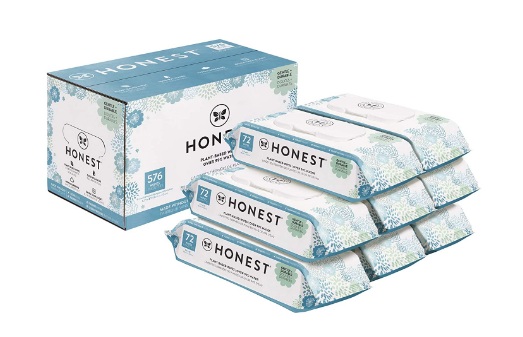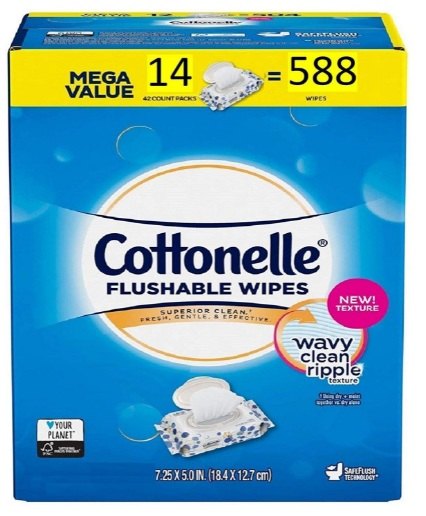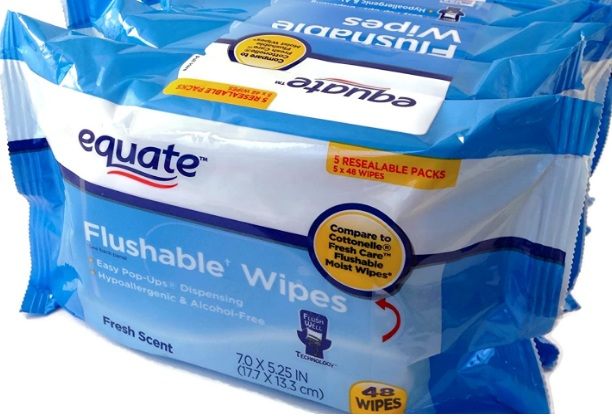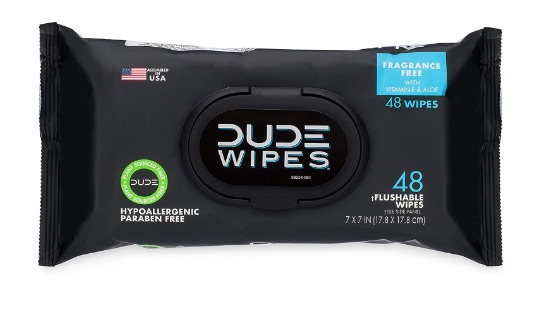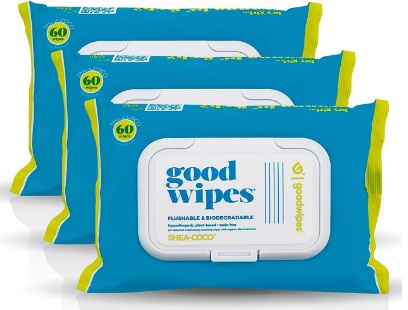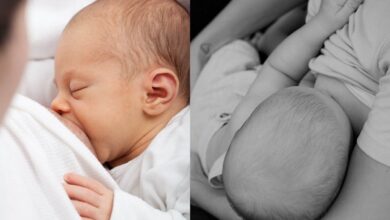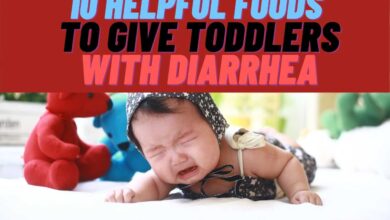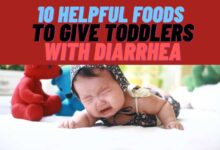Can You Flush Baby Wipes? 8 Things to Consider
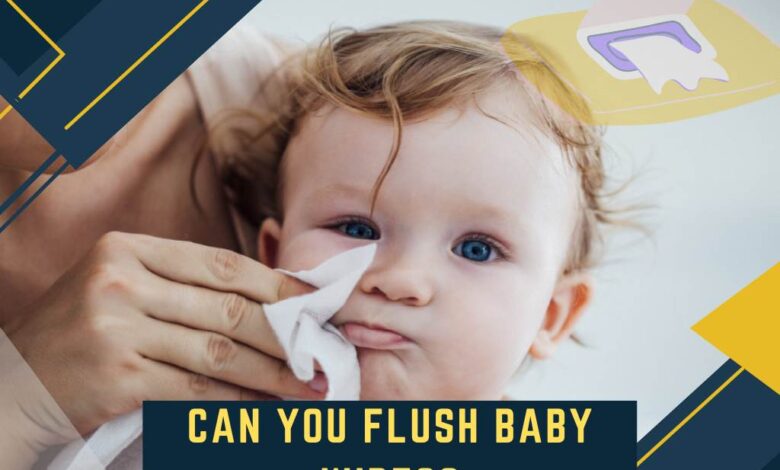
Can you flush baby wipes down the toilet? It’s one question every couple asks when they become parents.
Babies wipes or anything other babies’ things should not be disposed of anyhow. Especially for environmental safety and to avoid toilet blockage.
You must read this post to the end to ascertain If it is okay to flush baby wipes.
Table of Contents
Can You Flush Baby Wipes?
No! you should not flush baby wipes. Baby wipes, unlike toilet paper, are not designed to degrade when wet. They already contain a lot of moisture, which is why they’re so good at cleaning up spills.
If you flush baby wipes, then you’re inviting a blockage to build in your drain pipe. Even if you don’t cause a blockage, you’ll cause difficulties in your septic system (if you have one) or the sewer system down the road.
Keep in mind there are now “flushable” baby wipes on the market, some of which even claim to be septic-safe. While these wipes are advertised as flushable, not all are made equal.
Many tests have shown that most brands of “flushable” wipes take a long time to break down in the water, with some failing to break down.
Ideally, you should avoid flushing any wipes, including those labelled as flushable.
What are Baby Wipes
A Baby wipe is tiny to a medium-sized moistened piece of fabric that is folded and individually wrapped for convenience; it is arranged as a long roll containing individual wipes that you may peel off.
Baby wipes are used for cleaning purposes such as personal hygiene and domestic cleaning.
How to Dispose of Baby Wipes Correctly
What should you do with your baby wipes if flushing isn’t an option? This one is quite straightforward. Depending on the materials used to produce your baby wipes, you have two options.
The majority of baby wipes are made out of synthetic materials and chemicals. The only valid option for these wipes is to throw them away. Although it may not appear to be a great choice, it is the best option. Here is why wet wipes are thought to be harmful to the environment.
Composting is another option for certain manufacturers of biodegradable wipes. Some of these wipes may be composted because they’re composed of natural materials and don’t contain toxic chemicals
Composing is a lot better than throwing baby wipes away, but make sure the label says they’re biodegradable.
What Can You Flush Down the Toilet?
Before we get into the details “Can you flush baby wipes,” let’s take a look at things you can flush.
You can’t go wrong if you stick to tissue paper, wastewater, and body waste. Water rushes through, readily breaking down faeces and tissue paper on their way to the sewer.
Because bathroom tissue is a delicate object, it disperses when wet. That means that unlike many of the other common substances we’ll discuss in the following section, it degrades quickly and does not linger.
Keep a container next to the toilet so that if you think about flushing something other than garbage or tissue, you can reconsider.
Cushelle toilet roll is flushable because it is biodegradable and degrades when flushed. It’s a toilet paper you can rely on to be strong and made entirely of flushable materials.
What Should Never, Ever Be flushed?
Let’s look at some of the things that you shouldn’t flush. Whether in your home toilet or a public one. Avoid the following:
- Tampons
- Wet wipes
- Baby wipes
- Cardboard tubes
- Medicines
- Facial tissues
- Diapers
How Many Baby Wipes Does It Take to Clog a Toilet?
If you flush one or two baby wipes down the toilet, they may pass through without causing any problems.
However, if you flush more than two baby wipes at once, your toilet may become clogged. As a result, the wipes you flush down the toilet from time to time may be accumulating in your pipe, municipal sewer, or septic tank.
Can Wet Wipes Be Flushed Down the Toilet?
It may come as a surprise to you that you should not flush wet wipes. While they may pass through your pipes, they might affect your toilet in a variety of ways, including:
- Sewage clogs and sewer floods.
- Increase pollution levels.
- Affect marine life by adding rubbish to the oceans.
It’s worth mentioning that if you’re asking if you can flush flushable wipes down the toilet, that’s a different story. These wipes may be disposed of in this manner because they are engineered to break down in a way that wet wipes do not.
So, if someone asks you, “Can I flush wet wipes down the toilet?” you can confidently say, “No!”
Here are the answers to the most often asked questions, ranging from “can you flush baby wipes down the toilet” to “can you flush flushable wipes.” If you follow this advice, you’ll not only be helping the environment but also minimizing the possibility of smelly blockades.
Flushable Baby Wipes
Below are some of the recommended flushable baby wipes; however, we do not guarantee that it is safe to flush wipes.
1. Honest Company Wipes
Honest Company Baby wipes is disposable cloth baby wipe, contains safe and natural ingredients in its products. These wipes are composed entirely of plants and contain 99 per cent water.
The wipe is dermatologist-approved and hypoallergenic. It is free from Alcohol, Parabens, Chlorine Processing or Fragrances.
2. Cottonelle Flushable Wipes
These wipes are made entirely of biodegradable fibers. They clean better than toilet paper alone, yet they’re gentle enough for everyone in your family to use.
3. Equate Flushable Wipes
These fresh-scented wipes are easy to break down and won’t clog your septic tank. They’re filled with vitamin E and soothing aloe vera, so even sensitive skin won’t be irritated.
4. DUDE Flushable Wipes
DUDE is a high-quality flushable wipe that is soft and gentle on sensitive skin.
Our unscented wipes are soaked with soothing aloe vera and vitamin E to protect you and your baby from skid marks and irritation. DUDE Wipes are 25% bigger than the average flushable wet wipes consisting of plant-sourced fibres and plastic-free.
DUDE Wipes are hypoallergenic, alcohol and paraben-free, and made with 99 per cent water and plant-based ingredients.
5. Goodwipes Flushable Wipes
The flushable wipes from Goodwipes are completely biodegradable, plant-based, and flushable. As a result, it is environmentally friendly.
Our wipes are pH-balanced, alcohol-free, toxin-free, paraben-free, and hypoallergenic, with only hydrosol scents derived naturally from soaking botanicals in water.
What Happens When You Flush Baby Wipes?
Baby wipes flushed down the toilet may quickly clog sewage pipes and cause serious plumbing issues in the municipal’s sewer or septic tank system.
Flushing undesirable objects, such as tampons and wipes, can generate fatbergs, one of the plumbing problems.
In sewage systems, fatbergs are congealed clumps of grease and garbage. They have the potential to affect the entire town, causing large-scale sewer damage or serious septic tank problems.
If you mistakenly flush a wet wipe or another foreign object down the toilet, your only option is to try to fish it out.
A metal hanger can help you collect or get a grasp on wipes in the toilet. By doing your part, you are proactively protecting your system and neighborhood from blockages and other drain and sewage issues.
What Will Dissolve Baby Wipes?
There are no chemicals or products that can disintegrate baby wipes in our toilet or septic tank.
Many baby wipes consist of synthetic polymers chemically linked together to form a strong fabric that takes a long time to break down naturally in the sewage system.
Conclusion – Can you flush baby wipes
Babies are special and gifts from God. We have to cherish them and always be very careful about the way we handle things that concerns them, one of the reason is that they could easily get infected.
Baby wipes are never to be flushed down the toilet because of the effect they can cause, which we have explained in detail in this article.
If you have been flushing your baby wipes, you should stop it. It’s an unhealthy practice and can also affect your toilet system, making you spend extract money.
But, if you are looking for alternatives (flushable baby wipes), you can try some of the products listed above in this article.


